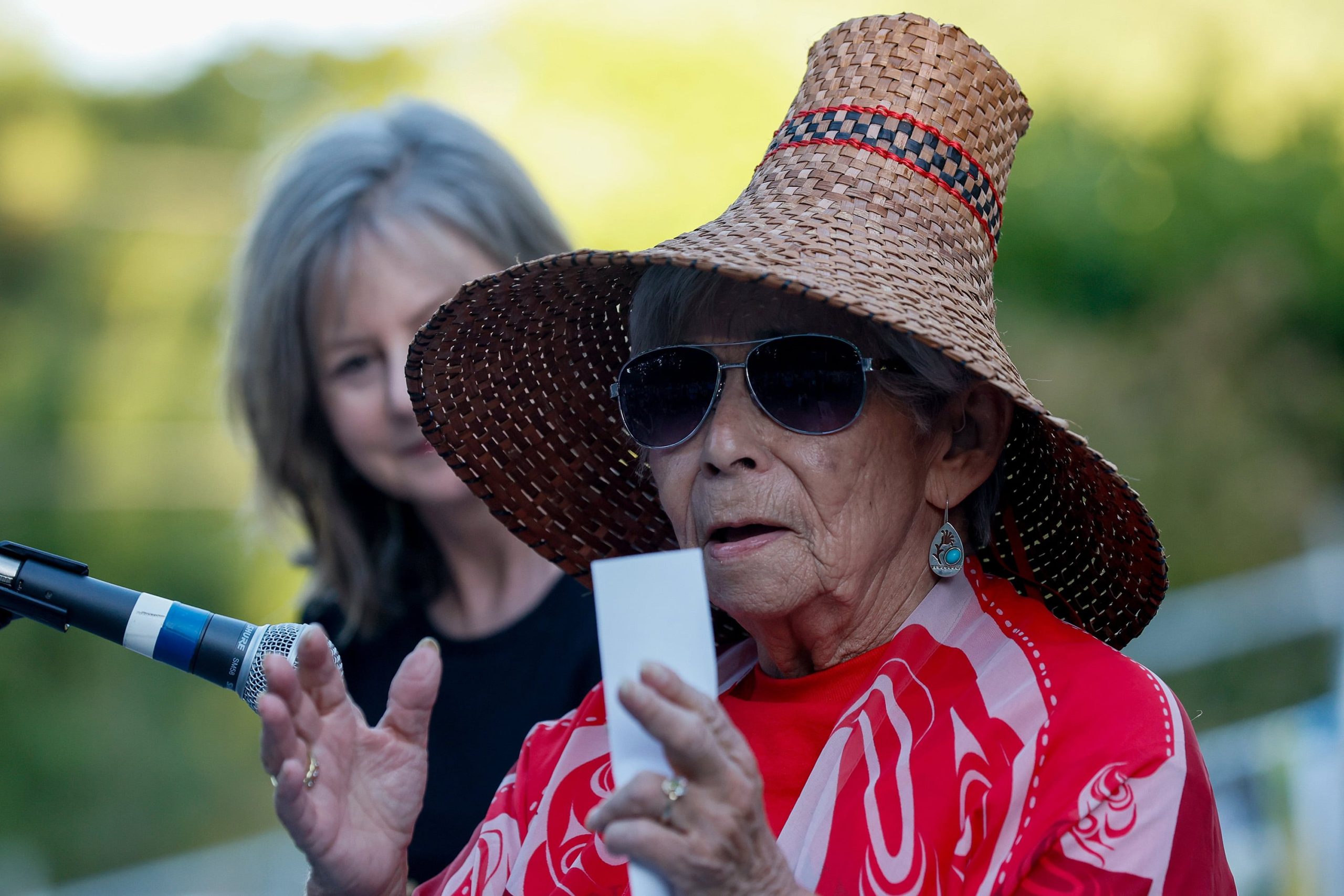A judge decided last week to give the Duwamish Tribe, an Indigenous group that has fought for federal recognition as an independent Indian country for almost 50 years, another opportunity to present their case.
Judge Jamal N. Whitehead of the Western District of the U.S. District Court in Seattle decided Thursday that the tribe’s application for recognition should be reexamined under revised guidelines that would be more advantageous to them.
The announcement was welcomed by Cecile Hansen, the Duwamish’s chairwoman since 1975.
“It opens the door,” Hansen added. It’s an amazing thing.
In May 2022, the tribe submitted its most recent application for federal recognition. Since the federal government granted them recognition in 2001 and then quickly revoked it following a change of administrations, they have been on a roller coaster. This most recent decision reopens the U.S. Department of Interior’s review of the plan.
According to the judge, the tribe will now have the opportunity to provide fresh evidence in accordance with 2015 regulations that permit it to rely on proof of self-identification as an Indian tribe, even from tribal women who have wed white settlers. Previous assessments did not take into account the women’s ties to the tribe.
In a matriarchal tribe, the Duwamish had claimed that this constituted a sexist rejection of the female ancestry of its leaders.
The federally recognized Muckleshoot, Suquamish, and Tulalip tribes have fiercely opposed the Duwamish’s battle. Because they are not descended from the same group that signed the treaty, the Duwamish treaty rights were denied in a previous federal court ruling, according to those Puget Sound tribes.
Judge George Boldt of the U.S. District Court rejected the rights granted by the Duwamish treaty, stating that their interactions with the U.S. government were more akin to those of a social or commercial organization. Boldt added that the word “tribe” he used in the opinion did not in any way imply that the Duwamish Tribe was, in fact, an Indian tribe as defined by the federal government.
In 1981, the Court of Appeals supported his decision. On review, the U.S. Supreme Court rejected.
However, Judge Whitehead concluded that the denial of treaty rights is irrelevant in this remand case. He stated that government recognition was not the same as treaty fishing rights.
Because recognized tribes enjoy special advantages like the ability to self-govern, the authority to manage federally owned lands, and the ability to petition for federal government services, recognition is a crucial federal process.
Tribal communities can submit an application for federal recognition, which the Department of Interior will review. They might also go straight to Congress. Tribes must fulfill seven requirements set forth by the Interior Department, one of which is to have been recognized as an American Indian entity for a significant period of time from antiquity to the present.
The judge concluded that the 2015 rules altered the meaning of that in ways that might benefit the Duwamish, both by allowing the tribe to define community continuity through relationships that were previously unconsidered, such as Duwamish women who married settlers, and by moving the period that must be accounted for up from historic times to 1900.
Interior requested the remand because it believed the case merited a new assessment in accordance with the 2015 regulations, not because it acknowledged error.
Golden Gardens, Aug. 2, 2011: Emmett Oliver, left, and Cecile Hansen, Duwamish tribe chairperson, wait for canoes to arrive. She and the Duwamish welcomed the boats in Golden Gardens, and he came up with the concept that became the “Paddle to Seattle” during the state’s centennial celebration twenty years ago.The Seattle Times/TNS/Alan Berner
Unquestionably, the ancient Duwamish Tribe inhabited the areas along the Black, Cedar, and Duwamish rivers that now comprise Seattle and the surrounding areas. The United States and the tribes of the Puget Sound region negotiated a number of treaties in the middle of the 19th century. On behalf of his father’s and mother’s tribes, the Suquamish and the historic Duwamish, Chief Seattle signed the Treaty of Point Elliott in 1855. Nearly all of the Point Elliott Treaty Tribes’ territory in Western Washington was given to the US.
Known as the Lummi Reservation, Tulalip Reservation, Port Madison Reservation, and Puyallup Reservation, these treaties created reservations in the Puget Sound area. Executive orders given in 1857 and 1874 created the Muckleshoot Indian Reservation, which was made possible by the Treaties of Medicine Creek and Point Elliott. Numerous people in the community who have Duwamish ancestry today are Puget Sound treaty tribe members; the Duwamish were not granted a reservation.
Hansen claims that despite everything, her primary objective has been to provide recognition to this people, who signed the Treaty of Point Elliott.
The Duwamish are who we are. The Insiders. And we remain here.
_____
The Seattle Times, 2025. Check out SeattleTimes.com. Tribune Content Agency, LLC is the distributor.




